Dallas Woodburn's Blog, page 24
December 18, 2010
Guest Post by Garasamo Maccagnone: Promote Your Book With Video!
 Today we have the pleasure of hosting the book trailer for Garasamo Maccagnone's recently released novel, St. John of the Midfield. Along with Garasamo's trailer, this article by Maccagnone offers some suggestions for how to use YouTube for marketing your book.
Today we have the pleasure of hosting the book trailer for Garasamo Maccagnone's recently released novel, St. John of the Midfield. Along with Garasamo's trailer, this article by Maccagnone offers some suggestions for how to use YouTube for marketing your book. Are you looking to create video to us in marketing your book? Or, are you looking for a way to get the video you already have in front of viewers? YouTubing is a form of social networking where people share their interests as well as create and post their own videos. Once posted, a video clip is keyword searchable and eligible to be placed in the playlist of anyone who finds the clip enjoyable. This is very helpful as you can use video to attract viewers and place your book trailer or video clip where it can be seen by your audience.
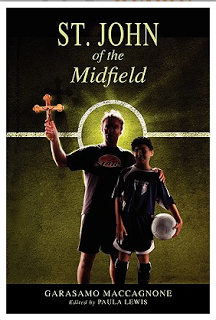 Playlists also appear in keyword searches with YouTube ranking keyword search results for playlists based in part on the number of clips in a list. Viewers who are searching on a theme are likely to run through an entire playlist and will save clips they like best to their own lists. They also have the option of emailing clips they like to a friend or of capturing and imbedding clips into their own site.
Playlists also appear in keyword searches with YouTube ranking keyword search results for playlists based in part on the number of clips in a list. Viewers who are searching on a theme are likely to run through an entire playlist and will save clips they like best to their own lists. They also have the option of emailing clips they like to a friend or of capturing and imbedding clips into their own site. Take advantage of YouTube and attract readers interested in your book themes by creating a playlist of clips that will capitalize on theme-based keyword searches. Once you have a playlist created you are ready to place your own video or book trailer in front of the searching public.
Consider creating and/or posting:
Author video blogsA slideshow video clip with an audio excerpt from your bookVideo book reviews from a professional reviewerBook Trailers
Tips for creating YouTube video clips and book trailers:
Ideally, a clip should run from one to three minutes in length. Avoid defining what the characters look like as most readers prefer to visualize what they are reading as they imagine it, placing themselves as the hero or heroine.Incorporate audio in the form of music to add emotion and depth.Use video comprised of still images or a mixture of stills and video.Insert written stills or scrolling written teasers.Images and content should directly relate to the content of your book.Content should convey a sense of what the book is about without spoilers.Keep in mind that the goal of your video clip is to capture the interest of the viewer, to create excitement about the book, and to encourage people to buy.Make sure you have set appropriate keyword tags on your video playlist, and have links to your author Web page in your YouTube channel profile settings. With your video or book trailer created and your playlist set up, the social networking aspect of your promotional efforts are set in motion. The YouTube channel and playlist you have set up are now ready to redirect traffic to your home page and the links to purchase your book.
Have fun and enjoy the creative process.
Tomorrow, Vonnie Faroqui will post a review of St. John of the Midfield, at her blog http://inkslingerswhimsey.blogspot.com/. Follow Vonnie on Twitter: @inkslngrswhmz. For the full tour schedule be sure to visit http://bit.ly/midfieldtour.
Published on December 18, 2010 00:00
December 17, 2010
"Oil and Water... and Other Things That Don't Mix" Anthology to Benefit the Gulf Oil Crisis
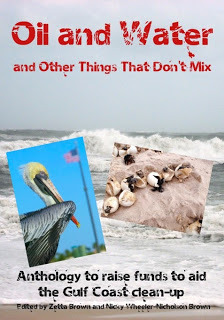 The disaster facing the Gulf Coast has been on the minds of millions of people and the ladies of the She Writes™- Southern Writers group expressed many feelings of anger, sadness, and disgust. We are not helpless, but what can we do?
The disaster facing the Gulf Coast has been on the minds of millions of people and the ladies of the She Writes™- Southern Writers group expressed many feelings of anger, sadness, and disgust. We are not helpless, but what can we do?She Writes™ members Zetta Brown and Nicky Wheeler-Nicholson Brown decided that something needed to be done where people can put their talents together and help make a difference. What better way than to produce an anthology where the proceeds will go where it is needed most?
Oil and Water...and Other Things That Don't Mix contains stories, poems, and recollections from 27 authors, women and men all dealing with the theme: "Conflict... Resolution Optional." These selections will make you laugh, cry, think, and some may even get you angry.
I am extremely honored to have my story "A Litany of Bruises" included in this anthology. There are also stories from award-winning authors and journalists, newly published authors, as well as from talented new authors who make their debut in this volume:
Jenne' R. Andrews - Shonell Bacon - Lissa Brown - Mollie Cox Bryan
Maureen E. Doallas - Mylène Dressler - Nicole Easterwood
Angela Elson - Melanie Eversley - Kimeko Farrar - L B Gschwandtner
John Klawitter - Mary Larkin - Linda Lou - Kelly Martineau
Patricia Anne McGoldrick - Ginger McKnight-Chavers - Carl Palmer
Karen Pickell - Dania Rajendra - Cherie Reich - Jarvis Slacks
Tynia Thomassie - Amy Wise - Zetta Brown - Nicky Wheeler-Nicholson Brown
All proceeds from Oil and Water... and Other Things That Don't Mix will go to directly benefit Mobile Baykeeper and Bay Area Food Bank, two charities helping to combat the effects of the spill and help the communities affected.
Find out more information and order the book at http://www.ll-publications.com/oilandwater.html
Published on December 17, 2010 08:52
December 16, 2010
Contests for Young Writers
* Seventeen Magazine short fiction contest: http://www.seventeen.com/fun/articles/fiction-contest-2011-rules
* The Poetry Society of Virginia Student Contest (open to everyone, not just Virginia residents): http://poetrysocietyofvirginia.webs.com/2011studentcontest.htm
* Two great writing contests from Weekly Reader: http://www.weeklyreader.com/node/1226
Good luck!
* The Poetry Society of Virginia Student Contest (open to everyone, not just Virginia residents): http://poetrysocietyofvirginia.webs.com/2011studentcontest.htm
* Two great writing contests from Weekly Reader: http://www.weeklyreader.com/node/1226
Good luck!
Published on December 16, 2010 06:45
December 14, 2010
Guest post by Edward Stern
The Write Stuff: 8 Reasons You Should Have a Writing Journal
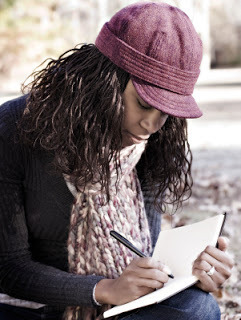 To be a writer, one needs to write. Bringing a laptop everywhere is not always feasible, especially for jotting down quick thoughts on the go. Many writers prefer to write consistently at designated writing times, but with a busy schedule, this can be hard to squeeze in.
To be a writer, one needs to write. Bringing a laptop everywhere is not always feasible, especially for jotting down quick thoughts on the go. Many writers prefer to write consistently at designated writing times, but with a busy schedule, this can be hard to squeeze in.
The solution? Keep a writing journal. You'll be amazed at how helpful it will be for getting your creative juices flowing and capturing inspiration when it strikes. Here are eight reasons why you should have a writing journal.
1. Take it anywhere: A writing journal is a great companion for travel, whether it be by car, bus, train, plane, whatever moves. Make the most of your time commuting to work or traveling for business by taking those often wasted hours and making them productive writing time spent in your journal.
2. Capture inspiration when it strikes: You never know where you'll be when that one little phrase, plot twist, sentence fragment, anything strikes you. Be prepared, and don't lose the moment. Bring your writing journal and a pen or pencil with you everywhere to make your genius turn of phrase does not escape you.
3. Play around with your words: With a writing journal, you can bring past work with you. Oftentimes, it's important to take a step back from your work to be able to evaluate it objectively and to hone your prose. Play with your phrasing until you get it perfect while on your lunch break or whenever it hits you.
4. Record observations: As a good writing exercise, go for a walk downtown or through a park and record observations. Jot down notes on the people you see and the events taking place. Later, sit down and imagine back stories for what you saw. You never know when these could turn into a key character or the plot for your next piece.
5. Make yourself write: To be a better writer, you need to write, obviously. Having a designated journal time keeps you writing even if it's not while working on a specific poem, novel, or other project. Keep your skills sharp by keeping a journal.
6. Keep it informal: If you are writing for a living or investing your heart and soul in a passion project, write in a journal informally about the process of writing, your personal happenings, or just silly fun side efforts. Keep your writing journal a fun place, one where you can relieve stress and where writing is always fun. It will keep you fresh and determined for your other work.
7. Play games: Give yourself prompts, write from other perspectives, write letters you'll never send -- play quick, casual writing games to keep your skills sharp and to try out new things. A little intellectual stimulation will help make you a better, more versatile writer, and may also inspire new directions for your more formal work.
8. Good writers write frequently: To be good at anything, you have to practice, and practice consistently. Keeping a writing journal forces you to do so, especially around a busy schedule.
Edward Stern is a guest blogger for Pounding the Pavement and a writer on online career training for the Guide to Career Education.
 To be a writer, one needs to write. Bringing a laptop everywhere is not always feasible, especially for jotting down quick thoughts on the go. Many writers prefer to write consistently at designated writing times, but with a busy schedule, this can be hard to squeeze in.
To be a writer, one needs to write. Bringing a laptop everywhere is not always feasible, especially for jotting down quick thoughts on the go. Many writers prefer to write consistently at designated writing times, but with a busy schedule, this can be hard to squeeze in.The solution? Keep a writing journal. You'll be amazed at how helpful it will be for getting your creative juices flowing and capturing inspiration when it strikes. Here are eight reasons why you should have a writing journal.
1. Take it anywhere: A writing journal is a great companion for travel, whether it be by car, bus, train, plane, whatever moves. Make the most of your time commuting to work or traveling for business by taking those often wasted hours and making them productive writing time spent in your journal.
2. Capture inspiration when it strikes: You never know where you'll be when that one little phrase, plot twist, sentence fragment, anything strikes you. Be prepared, and don't lose the moment. Bring your writing journal and a pen or pencil with you everywhere to make your genius turn of phrase does not escape you.
3. Play around with your words: With a writing journal, you can bring past work with you. Oftentimes, it's important to take a step back from your work to be able to evaluate it objectively and to hone your prose. Play with your phrasing until you get it perfect while on your lunch break or whenever it hits you.
4. Record observations: As a good writing exercise, go for a walk downtown or through a park and record observations. Jot down notes on the people you see and the events taking place. Later, sit down and imagine back stories for what you saw. You never know when these could turn into a key character or the plot for your next piece.
5. Make yourself write: To be a better writer, you need to write, obviously. Having a designated journal time keeps you writing even if it's not while working on a specific poem, novel, or other project. Keep your skills sharp by keeping a journal.
6. Keep it informal: If you are writing for a living or investing your heart and soul in a passion project, write in a journal informally about the process of writing, your personal happenings, or just silly fun side efforts. Keep your writing journal a fun place, one where you can relieve stress and where writing is always fun. It will keep you fresh and determined for your other work.
7. Play games: Give yourself prompts, write from other perspectives, write letters you'll never send -- play quick, casual writing games to keep your skills sharp and to try out new things. A little intellectual stimulation will help make you a better, more versatile writer, and may also inspire new directions for your more formal work.
8. Good writers write frequently: To be good at anything, you have to practice, and practice consistently. Keeping a writing journal forces you to do so, especially around a busy schedule.
Edward Stern is a guest blogger for Pounding the Pavement and a writer on online career training for the Guide to Career Education.
Published on December 14, 2010 02:36
December 9, 2010
Think P.I.N.K.: An interview with author and businesswoman Erica Moore-Burton
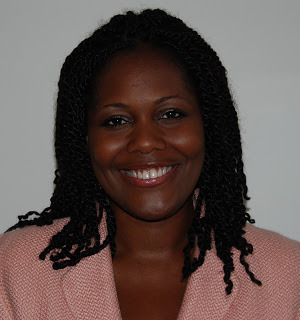
Erica Moore-Burton moved to the United States in her early twenties with $800 in her pocket and, she says, "a whole lot of faith that I was going to do well as a professional here." She didn't know anyone in the state she moved to, didn't have a job, a permanent place to live or any contacts. Moreover, she admits, she didn't really know what she wanted to do with her life. "I had a myriad of things that I was interested in, but wasn't ever been that person that knew at eight years old that I wanted to be a doctor, lawyer, accountant," Erica says.
Today, she has a successful career as an executive director for a national placement firm, professional speaker/coach, and author. Her book, The Little Professional P.I.N.K. Book of Success, tells her full story, and introduces readers to the P.I.N.K. Principles, which she used to build her career: Passion, Integrity, No Limits and Knowledge.
We caught up with Erica to discuss the book, her life as a writer, and her advice for all of us striving for our dreams!
Tell us about The Little Professional P.I.N.K. Book of Success. What was your inspiration behind this book?
I read an article written by Michelle Obama the other day, and loved when she said, "When you reach any level of success in life, it's not just enough to sit back and enjoy it. You must reach back and help others." Essentially, this book is about me giving back and helping others through my experiences, and my successes and failures in life (both big and small). It started when I worked for a Fortune 500 company and managed an office with over 60 individuals, many of whom were young women just starting out in their careers. I was a mentor to a few of them and was really surprised at the many questions that they would ask, that I thought were basic knowledge. In turn, I thought that an attractive, yet concise handbook would be great to help them navigate their careers.
There is a scary statistic that I reference in the book about individuals not reading when they finish college, so I wanted it to be a quick read, yet really valuable and packed with tools to help women. For those who want more, I have a book list at the end for further reading. My book is a short, yet informative read and has been endorsed by many human resources managers and women that are more senior in their careers too. Most have commented that they wish they had the book when they first started their career, and they also found golden nuggets that helped them in their roles today.
I start the book with talking about finding your passion, and there are exercises to help individuals find their passion from looking at their past. The book goes on to talk about networking, guarding your reputation and using it to help you get to the next level, how to use failure as a tool for success, how to conduct a 360 review with your peer group, finding mentors and getting the best from the relationship and other success principles!
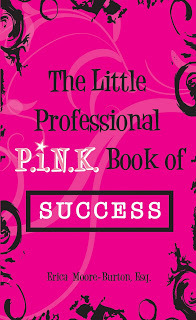 What have you learned through writing this book?
What have you learned through writing this book?Patience was the biggest thing. Also I learned how to handle being vulnerable. You are very vulnerable to criticism when you put information out there, and through writing this book I had to learn to be comfortable with that. Some people will like it, others won't, which is okay. As long as my message is heard by the right audience and my intention in helping women is met, then I have accomplished what I set out to do. I have been using this mantra lately: "Some will, some won't ... so what next!"
What is your writing routine? Do you write every day? Do you have a certain time or place you write?
It's funny, I don't really have a routine per se. I have to be in the mood to write, and when I am in the mood, I write in spurts. For this book, I wrote every day for a few months. It was typically at the same time of day. There were many days when I didn't feel like writing, but thank God my husband is a motivational speaker, and he helped me on many days with his "work 5" technique. Just write and commit to 5 minutes, that 5 minutes always leads to more. In my case (most of the time) it lead to a few hours! I write in my home office which has brightly colored orange walls and a huge painting of a Caribbean setting -- I kind of feel like I'm on an island when I'm in there, which is very relaxing and conducive to writing. Other places, the usual... Starbucks with a nice latte!
What was your path to publication like?
Long and as I referred to it earlier, a lot of patience was required. I worked with a couple of different editors which at times was frustrating! Things went wrong along the way, which was frustrating. There were days I was tired of writing, which was frustrating! There were days when I doubted myself... which was frustrating. With all the frustration around me, I kept my eyes on the prize and used some of the visualization techniques that I disclose in the book, and just knew that I would be holding a copy of the book in my hand when it was all said and done!
You are not only a successful writer, you are also a professional speaker and career coach. How do the different components of your life enrich each other, and how do you stay balanced?
I wear a lot of different hats in my life and I think that they all compliment each other well. I love speaking because I think I can really effect change in people's lives by telling my personal stories live. I actually fancied myself as an actress many years ago, and when I'm on stage, I really feel alive and genuinely enjoy teaching others. The personal coaching is really great because I get to work one on one with individuals and build a relationship. When I can see changes before my eyes in their lives and general mindsets, there is an immense sense of gratification. Again, I love helping and connecting others, it feeds me.
How do I stay balanced? Meditation and an attitude of gratitude. I am so grateful for my life, the opportunities that I have had and continue to have; to be living in this country; to have fresh food every day; to the warm water coming out of my shower. Gratitude exudes through every pore of my being for both the big and small things, and with that, it helps me to remain very balanced.
What is your biggest advice for young people reaching for their dreams?
While you're young, take risks and go for it. When I was younger, the biggest risk I took was coming to America. A lot people talked to me about what I didn't have. I often think about what would have happened if I stayed, and am again grateful that I didn't... even though I was scared. So, my advice is to take lots of calculated risks while you're young and really take advantage of all the wonderful resources that we have available to us.
In the book, you speak about the importance of finding a mentor. Can you speak a bit about what you have learned from the mentors in your life?
I have had so many mentors that have helped me in so many different ways. I suppose the biggest thing is to use mentors as an additional resource, most of my mentors have suggested efficient ways to get things done. Other mentors have shown me how to really appreciate life and live it to the fullest.
Is there anything else you would like to add?
I would like to add that it's important not only to read the book, but also to do the exercises at the end of each chapter. In most cases, experience is the best teacher, so by going through the exercises you will really learn a lot about yourself and will be able to use the information to help you in specific areas of growth.
Connect with Erica:
www.pinkprofessionals.com
Order the book:
http://www.amazon.com/Little-Professional-P-I-N-K-Book-Success/dp/0615313035/ref=sr_1_1?ie=UTF8&s=books&qid=1289081426&sr=8-1
Published on December 09, 2010 05:41
December 6, 2010
Write On's Holiday Book Drive is Underway!
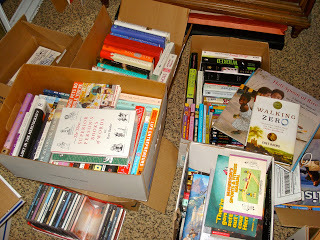
Toys are broken and clothes are outgrown ...
but the impact of books lasts a lifetime.
"Write On! For Literacy" is holding its Ninth Annual Holiday Book Drive to benefit underprivileged children! Last year we collected nearly 1,000 books (bringing our grand total to more than 11,000 books!) that were distributed to various schools and charities including the Boys & Girls Club, Casa Pacifica, and Project Understanding. Please do your part to help children have a better holiday season. Help beat illiteracy and give the gift that lasts forever: the gift of reading!
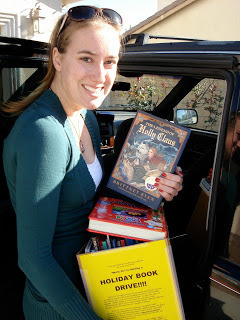 Want to get involved?
Want to get involved?Mail book donations to the Write On! chapter headquarters: 400 Roosevelt Court, Ventura, CA, 93003 You can also mail monetary donations that will be used to purchase books to the above address. (Checks made out to Dallas Woodburn.) Start a chapter in your area! Donate books to a local charity -- Boys & Girls Clubs are usually very grateful for donations -- and then e-mail me the total number of books donated which will be added to our grand-total.
Many thanks to our recent generous contributors!
* Barry Kibrick, host of the Emmy-award-winning PBS television show "Between the Lines," annually donates 400-500 books to charity.
* Raeanne Alliapoulos donated 30 books to the Boys & Girls Club in Pomona, California.
* A. William Benitez and his company Positive Imaging, LLC, shipped out 20 copies of Lottie's Adventure, a marvelous and imaginative book for kids and middle-graders: http://lottiesadventure.com
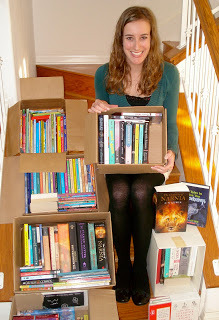 About Write On!
About Write On!"Write On! For Literacy" is a volunteer-run organization founded by author Dallas Woodburn in 2001. The goal is to encourage kids to discover confidence, happiness, a means of self-expression, and connection to others through reading and writing. The Write On! website features writing contests, book reviews, author interviews, writing tips and ideas, and ways for everyone to get involved. http://www.writeonbooks.org
The past eight years, Write On's Holiday Book Drive has donated 11,206 books to disadvantaged children across the nation.
Published on December 06, 2010 09:20
November 22, 2010
Interview with Aggie Villanueva
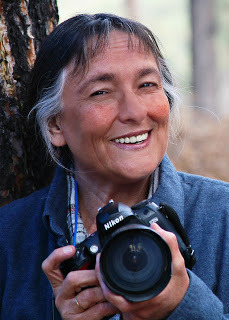 For decades peers have described Aggie Villanueva as a whirlwind who draws others into her vortex. And no wonder. She was a published author at Thomas Nelson before she was 30, and has founded many local writers' groups including the Mid-America Fellowship of Christian Writers three–day conference. She has also taught at nationwide writing conferences and published numerous writing newsletters for various organizations.
For decades peers have described Aggie Villanueva as a whirlwind who draws others into her vortex. And no wonder. She was a published author at Thomas Nelson before she was 30, and has founded many local writers' groups including the Mid-America Fellowship of Christian Writers three–day conference. She has also taught at nationwide writing conferences and published numerous writing newsletters for various organizations.Writing since the late 70s, bestselling author Aggie Villanueva's first novel, Chase the Wind, was published by Thomas Nelson 1983; Rightfully Mine, also Thomas Nelson, was published in 1986. She is also a critically acclaimed photographic artist represented by galleries nationwide, including Xanadu Gallery in Scottsdale, AZ. Aggie freelanced throughout the 80s and 90s, also writing three craft columns and three software review columns for national magazines, and was featured on the cover of The Christian Writer Magazine in October 1983.
Aggie founded Visual Arts Junction blog February 2009 and by the end of the same year it was voted #5 at Predators & Editors in the category "Writers' Resource, Information & News Source" for 2009.
Her non-fiction writing includes the handbook The Rewritten Word: Sculpting Literary Art No Matter The Genre, numerous marketing white paper reports, and professional blogging at Visual Arts Junction. She is a regular writer at the BookBuzzr Blog and Orange Soda, a prestigious SEO marketing company. Authors called on her so often for marketing guidance that in the summer of 2010 she founded her own company, Promotion a la Carte.
Aggie is generously offering a free ebook of her latest release, The Rewritten Word, which we discuss later in this interview. To enter the contest, all you have to do is comment on this post!
Welcome, Aggie! What a treat for us to have you here today sharing your wisdom! What would you like readers to know about you as an introduction?
Thanks so much for having me, Dallas. I'm excited to be here. Let's see. I've always taken tons of photos of things I love. Most of my adult life that was my beloved children. Now they live states away so it's become my beloved mountains. I guess that's why I became a professional photographer, so I could share the beauty.
And I recently served as wedding photographer for my daughter's wedding. But I'm a landscapist—I don't even own any indoor lighting equipment, proper filters, etc. I was honored beyond words that she asked me, but talk about one nervous photographer!
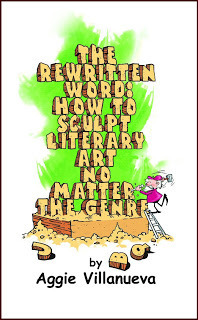 Tell us about The Rewritten Word. What was your inspiration/motivation behind this book?
Tell us about The Rewritten Word. What was your inspiration/motivation behind this book?Wanting to share what I've discovered, but I have to laugh because I didn't write it because I'm an Editor or English professor or any such expected reason. I wrote it because I'm a terrible writer. I had already figured that out by looking at any first draft. I'm just an average Joe who had to figure out what rewriting is all about in order to produce quality writing, whether fact or fiction.
When I first started writing I learned the admonishment "write, write and rewrite." And I obeyed, but my fourth drafts were no better than my first. The reason was simply that I didn't know what I was doing. I didn't understand what rewriting meant.
So then I read books on editing your work, but they were lofty, using grammar terms that college level grammar students would have a hard time following.
So I did exactly what I do with the examples in The Rewritten Word--I took the sentences and paragraphs that were unclear and clarified and simplified and shortened.
I rewrote each sentence and word, translating into ones I could understand and eliminating what didn't relate. At times that meant searching grammar books to find out what the heck the author had said. What I didn't realize at the time was that I was inadvertently learning the craft of rewriting, and with advanced applications.
Here's an example from the book:
Have you ever read a sentence like this?
Humanity is conceived here exclusively in terms of ritual function—man is made in order to offer sacrifices to the gods—and so the highly differentiated realms of history and moral action are not intimated in the account of man's creation.
Wouldn't it make more sense like this?
According to this account of man's creation, our only function is to sacrifice to the gods. The many facets of our purpose, such as our varied history and morality, are not even hinted at.
My edit may not impress the intelligentsia, but I understood it.
What have you learned through writing this book?
I think I re-learned what I've noticed most writers seem to automatically do. We like to share what we've learned. And writing it into books and articles comes natural for us. We seem to all share a love of learning and then sharing that knowledge.
What is your writing routine? Do you write every day? Do you have a certain time or place you write?
I always write on my laptop, and write continually. It takes daily writing for everything: my blog teaching authors to promote their own work, Visual Arts Junction http://www.visualartsjunction.com, my job as an author publicist at Promotion a la Carte http://www.promotionalacarte.com, being a regular contributor for the SEO marketing blog Orange Soda http://www.orangesoda.com/blog/turn-your-social-media-peekers-into-faithful-followers/ and BookBuzzr Blog http://www.bookbuzzr.com/blog/book-marketing/pimp-your-cover/, and then always there are industry reports we sell at Promotion a la Carte http://promotionalacarte.com/white-paper-reports/ and free reports for our clients, not to mention ongoing book projects. Unfortunately I haven't time for fiction nowadays. Hopefully someday soon.
How did you first begin writing? What was your path to publication?
Like most writers I wrote from the time I could create stories and get them from my head into words on paper, which was about five years old.
But I started writing for publication at about 27, a biblical novel that I asked a friend, Deborah Lawrence, to co-author with me. It was published by Thomas Nelson when I was 28 or 29 and I was hooked. My next historical novel was written solo, and Thomas Nelson published it too.
That was Rightfully Mine which I re-published myself July of 2009 as Rightfully Mine: God's Equal Rights Amendment. With lots of hard promotional work it became a top-ten best seller about 8 months later in three small categories on Amazon. I was so thrilled I took screen shots to prove it!
You are not only a successful writer, you are also an acclaimed photographic artist. How does art enrich your writing, and visa versa?
Photography helped my rewriting tremendously. With a photographed picture you create a story, but that story is set in stone once it's finished just as a published manuscript. You can't allow too little or too much into it, ONLY that which clearly communicates.
You don't show too much by allowing an overhead electric line to detract from the story your scene tells (verbosity). You may allow some objects to remain in shadow if they advance the whole of the story (nuances). You can't allow colors or textures that unintentionally infer things opposite to your message. Composition is everything to a photograph, just as it is to writing.
With writing (as is evident in The Rewritten Word) you must create not only clear and concise written images that communicate ONLY what you wish, but every aspect of your words and sentences and structure must tell that same story, and no other story.
To obtain that you carefully compose your written image, distill each kernel, matching the rhythm and nuances of each word with the scene's essence. Unless you are utterly engrossed with your composition it won't emerge as a relevant whole. You would include things in the written picture that actually take away from it, or use words with nuances that are opposite to your message/scene.
The similarities of the arts are amazing. That's why Visual Arts Junction (my teaching blog) has a subtitle, The Invisible Visual Arts, because that's exactly how I see writing.
What is your biggest advice for aspiring writers?
Give it your all. Invest your heart and soul, but don't forget the mind. It's important to study our craft, to understand the depths as well as the finished heights.
In your opinion, why is REwriting such an important part of the writing process?
I talked about that quite a bit above in my comparison to photography. I honestly don't know a writer whose first draft isn't horrible. But the first step is just to get our thoughts on paper. That's when the true writing craft begins.
Rewriting allows us to correct the composition errors of the first draft. In the rewrites we can carve away those aspects that are irrelevant, smooth out the curves that segue ideas together, gouge areas of light and shadow where all aspects infer ONLY what we wish to convey.
Is there anything else you would like to add?
Thank you so much for having me Dallas. I'd like to offer a free ebook version of The Rewritten Word to your readers, the winner to be your choice in the drawing. My way of saying thanks to everyone for allowing me to ramble on about the things I love.
Thank you so much! To enter the contest to win a free ebook of The Rewritten Word, all you need to do is write a comment on this post.
Contact Aggie!
Facebook Profile: http://www.facebook.com/aggiev
Facebook Fan Page: http://www.facebook.com/visualartsjunction
Twitter: http://twitter.com/visualartsaggie
LinkedIn: http://www.linkedin.com/in/cielosrojos
Promotion a la Carte: http://www.promotionalacarte.com
Published on November 22, 2010 05:05
November 18, 2010
Guest Post by Jill Shure: Reading Should be an Adventure!
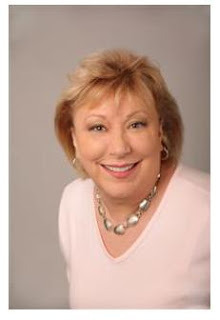 Why do Americans believe that reading a novel is like taking toxic smelling medicine? Is it because we were often forced to read extremely boring texts throughout high school and college? Did reading Beowulf and Paradise Lost forever kill your ability to enjoy a good book? I, too, did my time reading books which were supposedly good for me. Like spinach, they were meant to nourish me. But my personal belief is that the pretensions of educators and certain factions of the public make reading less of an adventure and more like a tedious journey.
Why do Americans believe that reading a novel is like taking toxic smelling medicine? Is it because we were often forced to read extremely boring texts throughout high school and college? Did reading Beowulf and Paradise Lost forever kill your ability to enjoy a good book? I, too, did my time reading books which were supposedly good for me. Like spinach, they were meant to nourish me. But my personal belief is that the pretensions of educators and certain factions of the public make reading less of an adventure and more like a tedious journey.I personally grew up devouring Nancy Drew books. My older sister handed me down the original versions published before 1959. And though my grade school teacher discouraged me from reading these mysteries, I read the entire series. Yes, I was also forced to read the classics. But those early reading pleasures of curling up with Nancy Drew inspired me to go on to enjoy all sorts of adult fiction. I finished high school having read works by Tolstoy, Joseph Conrad, and Dostoyevsky. In college I read most of William Faulkner, Hemingway, Eugene O'Neil, Tennessee Williams, and F. Scott Fitzgerald.
Fitzgerald, now regarded as a literary genius, actually wrote popular fiction in his day, achieving early fame with his first novel, This Side of Paradise. This bestseller was not praised for its high literary appeal but for how well it depicted the post World War I generation. It was Fitzgerald's 1920s view of wild youth indulging in outlawed whiskey, sexual misconduct, and what we would call excessive "partying" today.
I just wish the public would accept that reading should be pleasurable. Because books can improve your imagination, your vocabulary, and educate you about the world. And kids will read if they're inspired to. Just think of those Harry Potter books and those vampire novels kids are devouring.
So if your eleven-year-old son hates reading, try finding a biography of a sports hero he admires. Or the autobiography of a musician he's wild about. And if children see you reading for pleasure, they might get the idea that sitting on their beds with a good book is fun.
Don't worry about someone else's idea of what literature is. Read whatever you like. And if you hate a book, put it down. There are too many wonderful books out there to bore yourself.
Because reading encourages more reading. It certainly did wonders for me. I enjoyed it so much I became a writer. In fact I wrote a mystery called A CLAUSE FOR MURDER thanks to those hours spent with Nancy Drew. It's a cozy mystery which will give you hours of pleasure and make you laugh. Because I also believe that laughter is one of the greatest pleasures on earth.
Published on November 18, 2010 03:08
November 16, 2010
Ten Rules to Keep in Mind When Writing for Teens
1. Spend time with teens.
Volunteer at a high school.People-watch at the mall.Ask questions.Build relationships.2. Read YA lit.
Some of my favorite authors: Ellen Hopkins, Sarah Dessen, Laurie Stolarz, Joan Bauer, Mike Lupica, Ann Brashares, Libba Bray, Randy Powell, John Green, Carl Hiaasen, Ann Rinaldi, Sonya Sones, Markus Zusak3. Recruit a "teen advisory board" of readers.
Many teens will be happy to help you.Ask them to be honest above all else!4. Avoid being "preachy."
Nothing turns off a teen reader more quickly than a condescending tone.5. Be authentic.
Inhabit your characters. Learn their details and quirks.What do your characters love? Hate? Fear? Yearn for? Dream about?
6. If you use slang, use it correctly.
Same goes for technology references.Be sure to consider: what is new and popular today is tomorrow's "old news." Do you want to date your material?
7. Grab 'em from the first sentence.
Have teens read the first page of your manuscript, and then ask them if they would keep reading.
8. Don't be afraid to be dark!
You don't have to hold back. Teens can take what you want to throw at them.Many of our adult "classics" such as Catcher in the Rye and To Kill a Mockingbird would be considered YA if published today.9. Create active, vibrant characters who have something at stake.
Teens want to read about characters who are doing things, rather than just having things done to them. 10. Read your old diaries – they're treasure troves!
Reconnect with your teen self.Some of my most well-received YA lit has been based off my own persona experiences!
Volunteer at a high school.People-watch at the mall.Ask questions.Build relationships.2. Read YA lit.
Some of my favorite authors: Ellen Hopkins, Sarah Dessen, Laurie Stolarz, Joan Bauer, Mike Lupica, Ann Brashares, Libba Bray, Randy Powell, John Green, Carl Hiaasen, Ann Rinaldi, Sonya Sones, Markus Zusak3. Recruit a "teen advisory board" of readers.
Many teens will be happy to help you.Ask them to be honest above all else!4. Avoid being "preachy."
Nothing turns off a teen reader more quickly than a condescending tone.5. Be authentic.
Inhabit your characters. Learn their details and quirks.What do your characters love? Hate? Fear? Yearn for? Dream about?
6. If you use slang, use it correctly.
Same goes for technology references.Be sure to consider: what is new and popular today is tomorrow's "old news." Do you want to date your material?
7. Grab 'em from the first sentence.
Have teens read the first page of your manuscript, and then ask them if they would keep reading.
8. Don't be afraid to be dark!
You don't have to hold back. Teens can take what you want to throw at them.Many of our adult "classics" such as Catcher in the Rye and To Kill a Mockingbird would be considered YA if published today.9. Create active, vibrant characters who have something at stake.
Teens want to read about characters who are doing things, rather than just having things done to them. 10. Read your old diaries – they're treasure troves!
Reconnect with your teen self.Some of my most well-received YA lit has been based off my own persona experiences!
Published on November 16, 2010 02:17
November 15, 2010
Interview with Award-Winning Children's Author Donna McDine
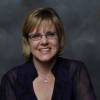 Donna McDine writes both fiction and nonfiction. Her articles have appeared in numerous publications including Writers' Journal, Parenting Universe, and Diet Trends Review. She is also the author of a children's book, The Golden Pathway, released by Guardian Angel Publishing this past August. She was kind enough to stop by today to answer a few questions about her new book and her writing life!
Donna McDine writes both fiction and nonfiction. Her articles have appeared in numerous publications including Writers' Journal, Parenting Universe, and Diet Trends Review. She is also the author of a children's book, The Golden Pathway, released by Guardian Angel Publishing this past August. She was kind enough to stop by today to answer a few questions about her new book and her writing life!To begin, share a little with us about us about your book, The Golden Pathway.
Be transported through time to the Underground Railroad, where high-pitched screams echo each night. David's cruel Pa always chooses the same victim. Despite the circumstances during slavery, David uncovers the courage to defy his Pa.
Raised in a hostile environment where abuse occurs daily, David attempts to break the mold and befriends the slave, Jenkins, owned by his Pa. Fighting against extraordinary times and beliefs, David leads Jenkins to freedom with no regard for his own safety and possible consequences dealt out by his Pa.
How did you come to write about the Underground Railroad?
History has always fascinated me, even as a young child. And when I found myself taking up residence (as an adult) in the historical hamlet of Tappan, NY (Rockland County) I became even more enthralled. Coupled with my father's involvement with the Rockland County Historical Society in creating artist replicas of the numerous historical locations throughout the county I found myself further drawn into the past. Then as a student at the Institute of Children's Literature I jumped at the chance to develop a historical fiction story about a young southern boy against slavery.
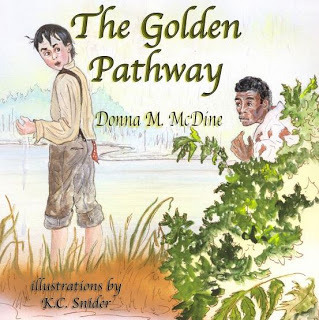
Is there a lesson you want to impart to today's kids from the Underground Railroad?
Overcoming adversity against immeasurable odds and that with determination success in achieving your dreams is possible.
That is beautiful. How did you go about doing your research?
Initially online, then visiting the Tappan Library and thoroughly researching the Underground Railroad.
What are you working on now?
As to no surprise another historical fiction manuscript based around the USS Constitution and how boys (as young as 11) were kidnapped by the Press Gangs and forced into hard labor on ships.
Wow, that sounds fascinating! Do you have advice for aspiring writers?
Get involved in a writer's critique group, whether at your local library, community center, or online. Several resources online:
Children's Writers' Coaching Club: http://writingforchildrencenter.comMuse Online Writers Conference: http://www.themuseonlinewritersconference.com
Who is your favorite author?
This has changed dramatically since I began writing in 2007. My past favorite authors were always the big names, Danielle Steele, James Paterson, Stephen King…you get my drift. Now I tend to gravitate to the lesser known authors who have as much talent and to be fair for those of you who've I enjoyed over the last several years I'm not going to name names in fear of missing someone. Especially since my list is ever growing.
Is there anything else you would like to add?
I want to take the opportunity to thank all who have helped me along the way in achieving my dream as an author. Of course beginning with my loving and supportive husband, Tom and daughter's Nicole and Hayley, my parents, in-laws, extended family and friends, and the dear writing communities I'm involved with both online and in person. Just like it takes a village to raise a child, it takes a nurturing personal and writing community to birth an author. Thank you!
Contact Donna:
@font-face { font-family: "Calibri";}p.MsoNormal, li.MsoNormal, div.MsoNormal { margin: 0in 0in 10pt; font-size: 12pt; font-family: "Times New Roman"; }a:link, span.MsoHyperlink { color: blue; text-decoration: underline; }a:visited, span.MsoHyperlinkFollowed { color: purple; text-decoration: underline; }div.Section1 { page: Section1; }
www.donnamcdine.comwww.donna-mcdine.blogspot.comwww.thegoldenpathway.blogspot.com
Tomorrow, November 16, my writing friend Maggie Ball is featuring an interview with Dianne Sagan on her wonderful blog. Check it out! http://magdalenaball.blogspot.com
Published on November 15, 2010 08:39



